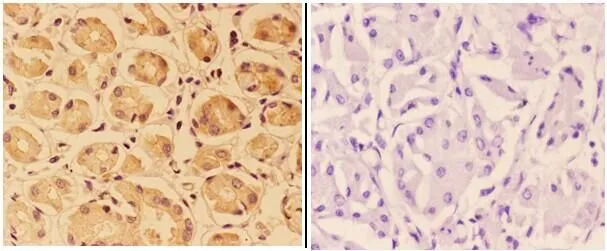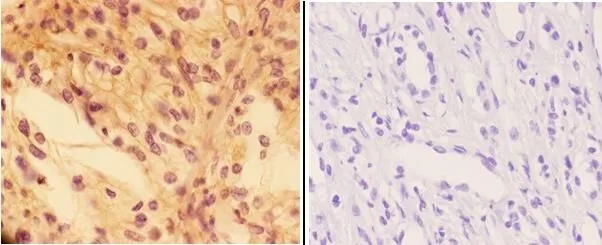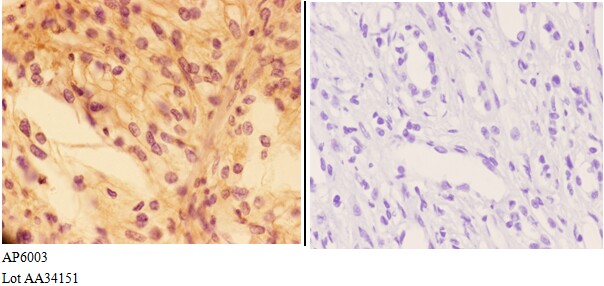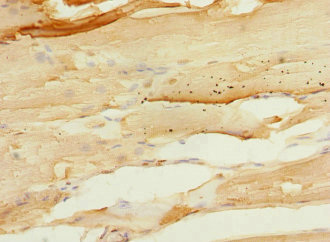
IHC-P analysis of human stomach carcinoma tissue using GTX66615 PTPRO antibody. Left : Primary antibody Right : Negative control Dilution : 1:50
PTPRO antibody
GTX66615
ApplicationsImmunoHistoChemistry, ImmunoHistoChemistry Paraffin
Product group Antibodies
ReactivityHuman
TargetPTPRO
Overview
- SupplierGeneTex
- Product NamePTPRO antibody
- Delivery Days Customer9
- Application Supplier NoteIHC-P: 1:50-1:200. *Optimal dilutions/concentrations should be determined by the researcher.Not tested in other applications.
- ApplicationsImmunoHistoChemistry, ImmunoHistoChemistry Paraffin
- CertificationResearch Use Only
- ClonalityPolyclonal
- Concentration1 mg/ml
- ConjugateUnconjugated
- Gene ID5800
- Target namePTPRO
- Target descriptionprotein tyrosine phosphatase receptor type O
- Target synonymsGLEPP1, NPHS6, PTP-OC, PTP-U2, PTPROT, PTPU2, R-PTP-O, receptor-type tyrosine-protein phosphatase O, PTP phi, PTPase U2, glomerular epithelial protein 1, osteoclastic transmembrane protein-tyrosine phosphatase, phosphotyrosine phosphatase U2, protein tyrosine phosphatase PTP-U2
- HostRabbit
- IsotypeIgG
- Protein IDQ16827
- Protein NameReceptor-type tyrosine-protein phosphatase O
- Scientific DescriptionThis gene encodes a member of the R3 subtype family of receptor-type protein tyrosine phosphatases. These proteins are localized to the apical surface of polarized cells and may have tissue-specific functions through activation of Src family kinases. This gene contains two distinct promoters, and alternatively spliced transcript variants encoding multiple isoforms have been observed. The encoded proteins may have multiple isoform-specific and tissue-specific functions, including the regulation of osteoclast production and activity, inhibition of cell proliferation and facilitation of apoptosis. This gene is a candidate tumor suppressor, and decreased expression of this gene has been observed in several types of cancer. [provided by RefSeq, May 2011]
- ReactivityHuman
- Storage Instruction-20°C or -80°C,2°C to 8°C
- UNSPSC41116161






